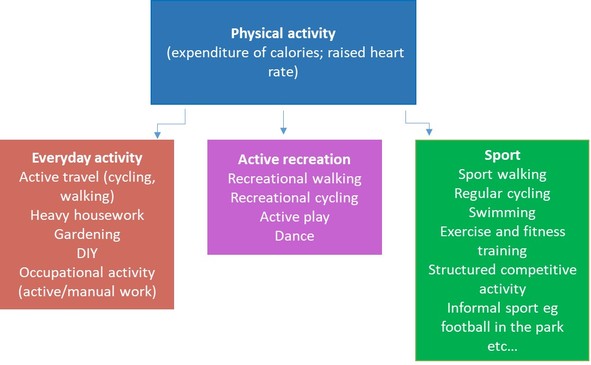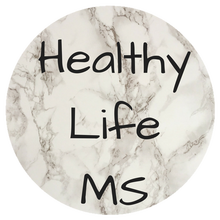By way of introduction to this section on how using exercise/physical activity can help to manage symptoms of our MS it is worth talking a bit about the benefits of exercise to the population in general.
Similarly to much of what we have said about lifestyle and diet already, you may well be aware of this but I think it can help sometimes to put a 'general health' perspective on things and discuss their general importance before focussing on specific benefits to us.
Similarly to much of what we have said about lifestyle and diet already, you may well be aware of this but I think it can help sometimes to put a 'general health' perspective on things and discuss their general importance before focussing on specific benefits to us.
Physical activity vs exercise
These terms are used fairly interchangeably but 'physical activity' refers to any pursuit which expends calories and raises the heart rate. Exercise refers to undertaking formal, organised activity with a specific goal in mind.
Physical activity benefits
A large body of research has unequivocally shown that shown that exercise/physical activity can help to reduce the risk of developing many chronic diseases:
Regular physical activity has positive effects on mental health including:
It can enhance psychological wellbeing by:
- Coronary heat disease
- Stroke
- Type 2 diabetes
- Some cancers
- Obesity
- Mental health difficulties
- Musculoskeletal diseases
Regular physical activity has positive effects on mental health including:
- Reduction in symptoms of depression
- Reduction in dementia and Alzheimer's disease
It can enhance psychological wellbeing by:
- Increasing self-perception
- Increasing self-esteem
- Improves mood
- Improves sleep-quality
- Reduces anxiety
- Reduces general fatigue (not the fatigue we can experience in MS but general tiredness/fatigue)
Risks of Sedentary behaviour
Until fairly recently risks associated with sedentary behaviour were considered the same as not participating in exercise or physical activity (as above), with most research highlighting the risks of overweight and obesity. However sedentary behaviour eg sitting for long periods has been shown to be independently related to development of:
- Type 2 diabetes
- Some cancers
- Metabolic function disorders
Sources:
GOV.UK (2011) 'Start active, stay active'. A report on physical activity from the four home counties' Chief Medical Officers. Available online at: www.sportengland.org/media/2928/dh_128210.pdf
GOV.UK (2011) 'Start active, stay active'. A report on physical activity from the four home counties' Chief Medical Officers. Available online at: www.sportengland.org/media/2928/dh_128210.pdf

